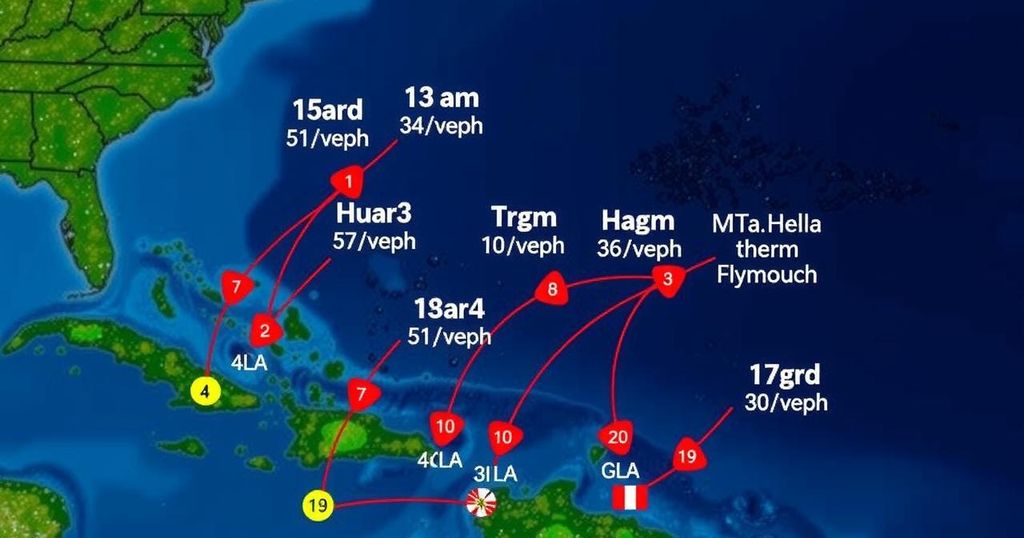Conclusion of the 2024 Atlantic Hurricane Season: A Record-Breaking Year

The 2024 Atlantic hurricane season ended with 11 hurricanes, a significant increase from the average of seven. Major storms included Hurricane Beryl, which debuted as the earliest Category 4 hurricane, and Hurricane Helene, causing over 200 deaths. Hurricane Milton reached winds of 180 mph, impacting Gulf regions. This season exemplifies the effects of climate change on hurricane intensity and timing.
The 2024 Atlantic hurricane season concluded on Saturday, marking a tumultuous period that produced 11 hurricanes, surpassing the average of seven. This season was notably busy, attributed largely to atypically warm ocean temperatures. Eight hurricanes made landfall across various regions, including the U.S., Bermuda, Cuba, and the Dominican Republic. Noteworthily, Hurricane Beryl emerged as the earliest recorded Category 4 hurricane to develop in June, impacting Grenada and causing significant damage. Subsequently, Beryl intensified into the first Category 5 hurricane of the season by July 1, contrary to the norm where major hurricanes typically do not materialize until September.
September witnessed Hurricane Helene, which was particularly devastating, resulting in over 200 fatalities across the southeastern United States. The storm inflicted an estimated $48.8 billion in damage in North Carolina alone, with extensive destruction to infrastructure, including homes and agricultural lands. Other states, such as Florida, Georgia, and Virginia, also experienced severe impacts. October brought Hurricane Milton, known for its rapid intensification, reaching maximum wind speeds of 180 mph, among the highest recorded in the Gulf of Mexico. This period brought record rainfall to areas like Asheville and Tampa, exacerbating flooding risks.
In November, Hurricane Rafael approached the strongest November storm status in the Gulf of Mexico, making landfall in Cuba amid recovery efforts from prior storms. This season highlights the increasing influence of climate change on hurricane formation, as stated by hurricane researcher Brian McNoldy. He remarked that, “I do not ever point to climate change as causing a specific weather event, but it certainly has its finger on the scale and makes these extreme storms more likely to occur.” As ocean temperatures continue to rise due to anthropogenic emissions, the patterns of hurricane activity may shift further from historical precedents.
In light of the rising global temperatures linked to climate change, the 2024 Atlantic hurricane season serves as a critical study of how these environmental shifts are influencing the frequency and severity of hurricanes. With hurricanes becoming more intense and occurring at unexpected times—such as Hurricane Beryl forming in early June and Hurricane Milton maintaining extraordinary strength late in the season—there is mounting concern among climatologists and meteorologists about the future trajectory of storm patterns. These changes challenge existing meteorological models and emphasize an urgent need for improved adaptive strategies.
The 2024 hurricane season has underscored the profound changes occurring within our climate system, making hurricanes fiercer and more unpredictable. With records being broken and historical patterns being upended, the implications for areas prone to storms are significant. The findings also reiterate the essential role of climate change in influencing severe weather, calling for heightened awareness and proactive measures to mitigate potential disasters in the future.
Original Source: www.arkansasonline.com







